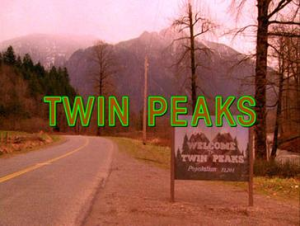Seuss sparks controversy for Olentangy
February 8, 2023
In an episode of NPR’s podcast “Planet Money,” an Olentangy teacher was stopped by assistant director of communications, Amanda Beeman, from finishing a reading of Dr. Seuss’s “The Sneetches.”
Beeman stepped in to cut the reading off after a third grade student at Shale Meadows Elementary commented, “It’s almost like what happened back then, how people were treated … Like, white people disrespected Black people.”
The book in question, “The Sneetches,” was intended to teach the kids an economics lesson.
According to the Columbus Dispatch, the children’s book is about two kinds of Sneetches: those with stars on their bellies and those without stars. The ‘Plain-Belly Sneetches’ are judged negatively by their appearance, so capitalist Sylvester McMonkey McBean makes money selling them stars. Meanwhile, the ‘Star-Bellied Sneetches’ don’t like associating with the Plain-Belly Sneetches, so they start paying to have a machine remove the stars.
When one of the students interpreted a different lesson, Beeman stepped in to cut the reading short. Although the book had already been agreed upon by NPR and Olentangy, the decision to cut the reading off came after race was brought up. Controversy has recently spread across the Olentangy community as parents and students debate how the situation should have been handled.
In the podcast, Beeman interrupted the reading to say that the themes covered in the book didn’t seem to coincide with economics. Although the book does have several themes that illustrate capitalism, scarcity, and several other economic concepts, the deterred conversation was unexpected.
In a statement to NPR prior to the release of the podcast, Beeman shared that “When the book began addressing racism, segregation and discriminating behaviors, this was not the conversation we had prepared Mrs. Robek, the students, or parents would take place. There may be some very important economics lessons in ‘The Sneetches,’ but I did not feel that those lessons were the themes students were going to grasp at that point in the day or in the book.”
A peaceful protest was held outside the district offices on Jan. 16 by families and individuals who believe conversations about race should be encouraged in school environments. Several have called for Beeman’s removal from Olentangy.
Parent Sarah Cook, according to the Columbus Dispatch, explained that she wants “children to be able to speak from their heart and make meaningful connections to what they are reading and learning and connect it to the world and make a change in the world. We don’t want those discussions to be squashed.”
NPR host Erika Beras shared that the classroom went silent for the first time that day after the reading ended. The kids who had previously jumped up at every chance to ask questions had been silenced.
“I don’t want [my daughter] to be in the middle of a discussion about discrimination or race and feel ashamed or guilty to having brought it up,” Cook said.
Several parents expect additional training on equity and diversity for the Olentangy communications department, and have expressed disappointment in how it was handled.
“Ms. Beeman made a personal judgment call to halt the reading of the book because some of the themes and undertones that were unfolding were not shared with parents in advance as they had agreed to have their children recorded on a national radio program discussing economics and financial literacy. Otherwise, Ms. Beeman would not have intervened,” Olentangy Schools Superintendent Mark Raiff said in a statement.

















